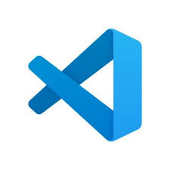| Facebook Moves To Visual Studio Code |
| Written by Kay Ewbank |
| Monday, 25 November 2019 |
|
Facebook has announced that Visual Studio Code is now the platform of choice for its developers, in conjunction with internal extensions based on Facebook's own Nuclide development environment. Making the announcement, Facebook's Joel Marcey said that there's no mandated development environment within Facebook, with some developers using vim, and many still using Facebook's own internal, unified development environment called Nuclide, which was developed from a set of open-source packages built on top of the Atom editor. At one time Nuclide was available in an open source version, but this was retired in 2018.
Since then, Facebook has been moving Nuclide to Visual Studio Code, with some features implemented as internal-facing extensions. Facebook's choice of Visual Studio Code is based on the current state of the tool, the investment and support from Microsoft and the open source community, and its robust and well-defined extension API that means Facebook can extend it for large-scale development. An important aspect is the support for remote access via remote extensions that provide benefits including the ability to work with larger, faster, or more specialized hardware than is locally available; to create tailored, dedicated environments for each project’s specific dependencies; and to switch between multiple running development environments without impacting local resources or tool performance. Facebook is working with Microsoft to strengthen the remote extensions to provide any developer with the means to carry out remote development at scale with Visual Studio Code. Extensions for Visual Studio Code used in Facebook provide syntax highlighting, formatters, linters, etc for Facebook's own languages including Flow, Hack and Reason, which are used alongside Python C++ and Java. Marcey said: "With Facebook’s internal move to Visual Studio Code, Flow has been in active development, through areas like Language Service Protocol (LSP) improvements, to better ensure the language works great with Visual Studio Code" Given that the remote development capabilities added by Microsoft are available as extensions for anyone using Visual Studio Code, it'll be interesting to see going forward whether any of Facebook's internal extensions make it to public use.
More InformationRelated ArticlesVisual Studio Online Is VS Code Atom v Visual Studio Code - The Unexpected Consequence Of Consolidation Program Arduino in Visual Studio Code Visual Studio Code - Now With Added Extensions Microsoft Releases Visual Studio Code IDE For Linux, Mac And Windows A Programmer's Guide To Go With Visual Studio Code
To be informed about new articles on I Programmer, sign up for our weekly newsletter, subscribe to the RSS feed and follow us on Twitter, Facebook or Linkedin.
Comments
or email your comment to: comments@i-programmer.info |


